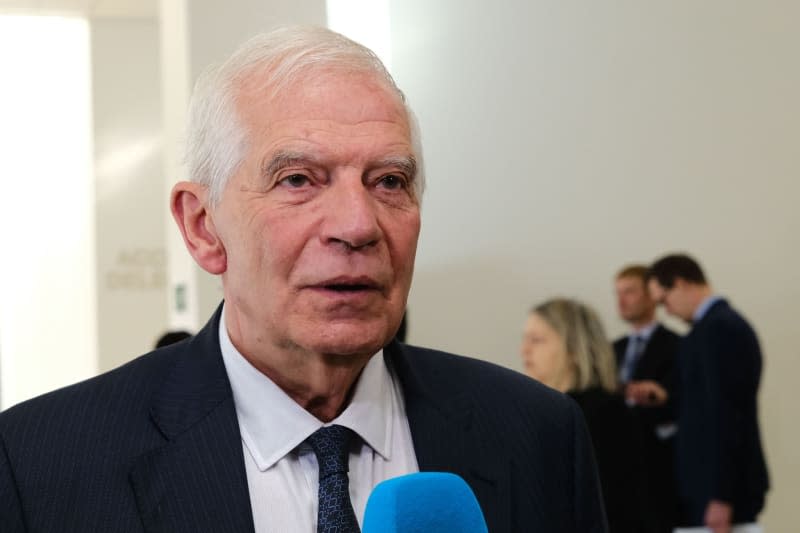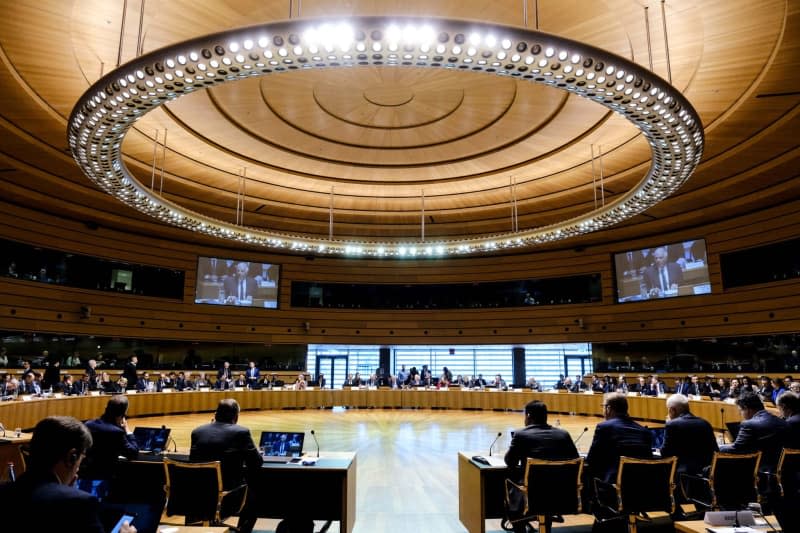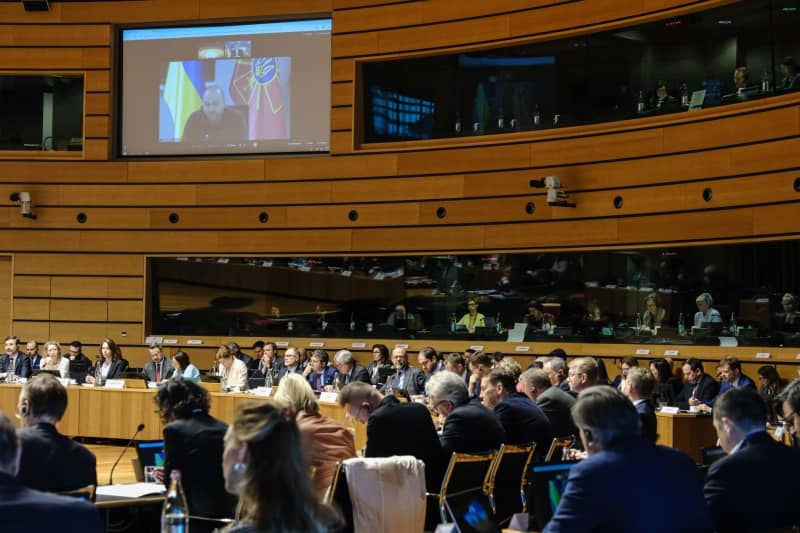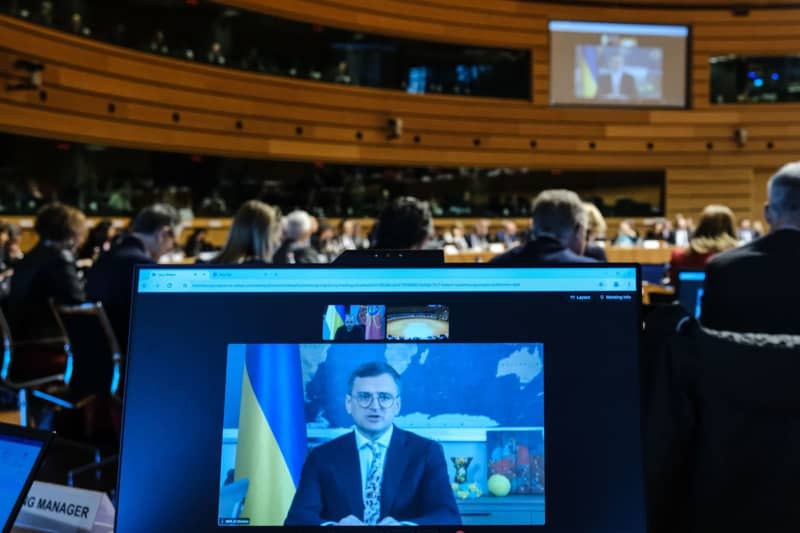Top EU diplomat urges members to send Patriot systems to Ukraine

- Oops!Something went wrong.Please try again later.
EU foreign policy chief Josep Borrell urged member states on Monday to send the Patriot air-defence systems requested by Ukraine.
"Now everything has been said and a lot of things [have] to be done," Borrell said in a press conference in Luxembourg after a joint meeting of EU foreign and defence ministers.
With the front line under heavy pressure by Russian forces, Ukraine has been pleading with allies to send more ammunition and weaponry, especially anti-aircraft systems like the Patriot.
Borrell said EU countries understand Ukraine's urgent needs and that all countries "were in a position to take decisions." The Patriots are not in the EU executive's possession, Borrell said. "The Patriots are in the capitals and it's up to them to take the decisions."
EU foreign and defence ministers discussed support for Ukraine - following US lawmakers' approval of a nearly $61 billion aid package - as well as sanctions against Iran for its attack on Israel and its arming of Russia.
Latvia's new foreign minister, Baiba Braže, said it was important that EU countries don't become complacent now that the US has passed its long-delayed aid package.
"We have to step up. It's a crucial time," she said before the meeting. "If Europe has the ambition to manage conflict on its continent, this is the time to show them."
The other main item on the agenda was new punitive measures on Iran for attacking Israel. Iran has also helped to arm Russia's war, Lithuanian Foreign Minister Gabrielius Landsbergis noted at the start.
Monday's sanctions discussion is "mostly about spare parts for drones that are still not under sanction, and ballistic missiles," Landsbergis said.
The sanctions are linked to a regime set up for targeting supporters of the Russian invasion of Ukraine.
Borrell confirmed later that a political agreement had been reached to expand the punitive measures to cover the potential transfer of Iranian missiles to attack Ukraine. He stressed that this is not reported to have happened yet.
Borrell also said after the meeting that the EU would expand this sanctions regime to make it more difficult for Iranian proxies in the Middle East to receive drones and missiles.
EU ministers also discussed listing Iran's Islamic Revolutionary Guard Corps (IRGC) as a terrorist group. Designating the branch of the Iranian armed forces as a terrorist organization is challenging.
The IRGC would first have to be prosecuted by a national authority for terrorist activities under EU law to prompt this designation.
A recent court ruling in Dusseldorf, Germany, concerning the activities of the IRGC, is being examined by EU officials. This could open the way to a terrorist designation for the IRGC.
"How many fronts does Iran need to open for us to get serious about sanctioning them?" Landsbergis asked, noting the Islamist regime's involvement in Ukraine and its attack on Israel.




